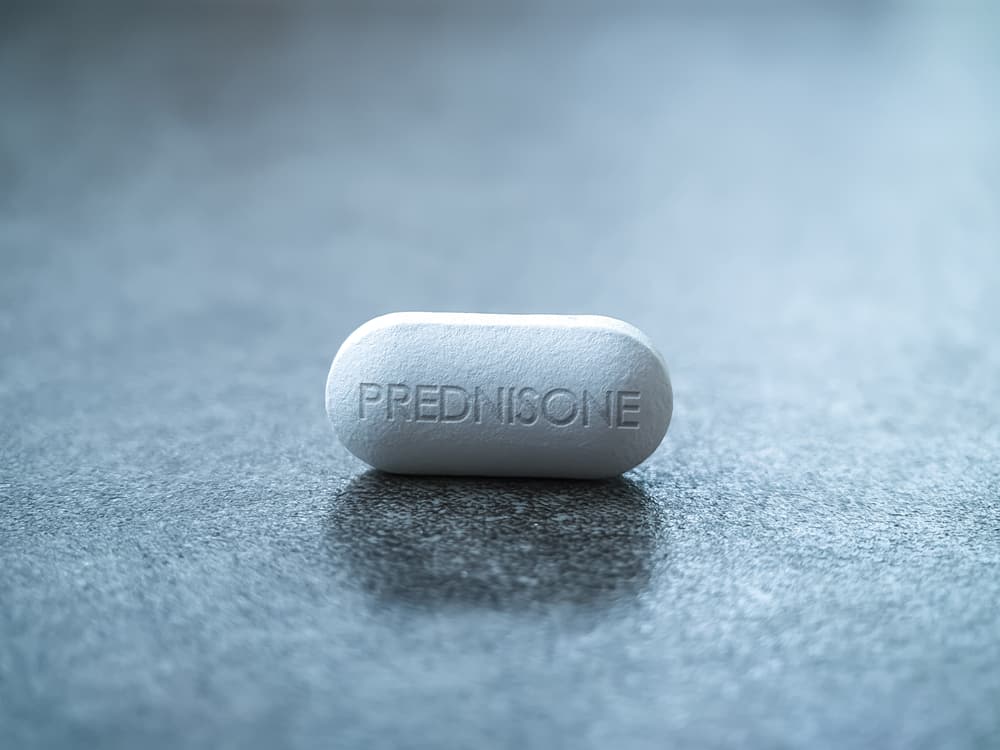Steroids are a type of medication that is commonly used to treat a variety of medical conditions. However, one of the lesser-known side effects of steroids is constipation. In this blog post, we will explore the relationship beteen steroids and constipation and provide tips on how to manage this side effect.
Steroids, also known as corticosteroids, work by reducing inflammation in the body. They are commonly used to treat conditions such as asthma, arthritis, and autoimmune disorders. While steroids can be effective in treating these conditions, they can also cause a range of side effects.
One of the most common side effects of steroids is changes in appetite, which can lead to weight gain. This can put pressure on the digestive system, leading to constipation. Additionally, steroids can affect the way the digestive system works, leading to slower bowel movements and constipation.
It is important to note that not everyone who takes steroids will experience constipation. The likelihood of experiencing this side effect can depend on a range of factors, such as the dose of steroids, the length of treatment, and individual factors such as age, overall health, and diet.
If you are experiencing constipation while taking steroids, there are several things you can do to manage this side effect. One of the most effective ways to prevent constipation is to increase your fluid intake. Drinking plenty of water and other fluids can help to soften stools and make them easier to pass.
Another way to prevent constipation is to increase your fiber intake. Fiber is an important nutrient that helps to promote healthy bowel movements. You can increase your fiber intake by eating more fruits, vegetables, whole grains, and legumes.
If these dietary changes are not effective, your doctor may recommend medications to help manage constipation. These can include over-the-counter laxatives or prescription medications that stimulate bowel movements.
Steroids can cause constipation as a side effect. While not everyone who takes steroids will experience this side effect, it is important to be aware of the potential risks. If you are experiencing constipation while taking steroids, there are several things you can do to manage this side effect. Talk to your doctor about your options and work together to find a solution that works for you.
The Effects of Steroids on Bowel Movements
Steroids, such as prednisone, can affect the digestive system and potentially cause gastrointestinal symptoms. However, diarrhea is not a commonly reported side effect of steroid use. Some individuals may experience increased appetite, indigestion, or other gastrointestinal disturbances while taking steroids. It is important to discuss any concerns or symptoms with a healthcare provider to determine the appropriate course of action.

Source: health.com
The Effects of Steroids on Constipation
It is possible for steroids, specifically systemic corticosteroids like prednisone, to cause constipation. The exact reason for this is not fully understood, but it appears to be related to the dose of the steroid. When taking these medications, it is important to be aware of potential side effects, including constipation. To manage constipation caused by steroids, it is recommended to increase fluid and fiber intake and consider medications if needed. It is also important to talk to a healthcare provider if constipation becomes a problem while taking steroids.
Common Side Effects of Steroids
Systemic steroids are medications that can be used to treat a variety of medical conditions such as inflammation, allergic reactions, and autoimmune diseases. However, they can also cause several side effects, some of which can be serious. Here are 5 common side effects of systemic steroids:
1. Increased appetite: Steroids can increase your appetite, leading to weight gain and an increased risk of developing type 2 diabetes.
2. Mood changes: Steroids can cause mood swings, anxiety, and depression. These changes in mood may be more pronounced in people who are already prone to mental health problems.
3. Muscle weakness: Steroids can cause muscle weakness, especially in people who take them for a long time. This can make it difficult to perform everyday activities, such as climbing stairs or lifting objects.
4. Lower resistance to infection: Steroids can suppress the immune system, making it harder for your body to fight off infections. This can increase your risk of developing infections, such as pneumonia.
5. Easy bruising: Steroids can cause your skin to become thin and fragile, making it more prone to bruising and othr types of skin damage.
It’s important to note that not everyone who takes steroids will experience these side effects, and the severity and duration of the side effects can vary depending on the individual and the dose of the medication. If you are taking steroids and experiencing any of these side effects, or if you have any concerns about your medication, speak to your healthcare provider.
The Effects of Steroid Use on Digestion
Steroids can cause bloating and constipation as side effects. Steroids are known to cause fluid retention in the body, which can lead to bloating and swelling in varous parts of the body, including the face, hands, and feet. This is because steroids increase the production of aldosterone, a hormone that regulates salt and water balance in the body. When aldosterone levels increase, the body retains more water, leading to bloating.
Additionally, steroids can slow down the digestive system, which can cause constipation. This happens because steroids affect the smooth muscles of the digestive tract, making them less active. As a result, food moves more slowly through the digestive system, leading to constipation.
If you experience bloating or constipation while taking steroids, it is important to talk to your doctor. Your doctor may recommend adjustments to your medication, diet, or lifestyle to help manage these side effects. It is also important to drink plenty of water and eat a high-fiber diet to help prevent constipation while taking steroids.
Managing Constipation Caused by Steroid Use
Constipation is a common side effect of medication, including steroids. Fortunately, there are several options available to help alleviate this discomfort. Stimulant laxatives, like bisacodyl or senna, are often recommended as a first line of treatment as they can provide quick relief. However, it is important to note that they shuld not be used for extended periods of time as they can lead to dependency and other side effects.
Another option is osmotic laxatives, such as polyethylene glycol (Miralax), which work by drawing water into the colon to soften stool and make it easier to pass. These laxatives may take a bit longer to work, but they tend to have fewer side effects and are safe for long-term use.
Stool softeners, also known as emollient laxatives, are another option. These medications work by increasing the amount of water in the stool, making it easier to pass. However, they may not work as effectively on their own and are often used in conjunction with other laxatives.
It is important to speak with a healthcare provider before starting any new medication or treatment for constipation, especially if you are taking steroids or have any underlying health conditions. Additionally, maintaining a healthy diet and staying hydrated can help prevent constipation and improve overall bowel function.

Common Side Effects of Steroids
Steroids are synthetic medications that mimic the effects of the hormone cortisol in the body. While they can be used for a variety of medical conditions, they also come with various side effects. Three common side effects of steroids include fluid retention, mood changes, and gastrointestinal upset. Fluid retention can cause swelling in the legs and feet, while mood changes can include increased irritability, depression, or anxiety. Gastrointestinal upset can range from mild stomach discomfort to more serius issues like ulcers or bleeding. Other potential side effects include high blood pressure, increased risk of infection, and changes in blood sugar levels. It is important to discuss the risks and benefits of steroid use with your healthcare provider before starting any new medication.
Physical Side Effects of Steroids
Steroids are synthetic hormones that are commonly used to treat various medical conditions. However, when used improperly or abused, they can cause various physical side effects. Four common physical side effects of steroids are liver damage, kidney damage, increased blood pressure and cholesterol levels, and decreased joint flexibility. Long-term use of steroids can damage the liver by causing inflammation or scarring, which can lead to liver failure. Steroids can also cause kidney damage, which can result in kidney failure or the development of kidney stones. Additionally, steroids can increase blood pressure and cholesterol levels, which can increase the risk of heart disease. steroids can decrease joint flexibility, which can lead to joint pain and stiffness. It is important to use steroids only under the supervision of a healthcare provider and to follow the recommended dosage and duration of use to avoid these potentially srious side effects.
The Risks of Steroid Use: Bowel Obstruction
Steroids can cause bowel obstruction, although the mechanism is different from that of a true mechanical bowel obstruction. Acute ileus due to steroid withdrawal can lead to symptoms of intestinal obstruction in some patients. This type of ileus is caused by a disruption in the normal muscular contractions of the intestines, leading to a temporary paralysis of the bowel. This can result in symptoms such as abdominal pain, bloating, and constipation. However, it is important to note that true mechanical small-bowel obstruction is a separate condition that can also occur independently of steroid use. If you have concerns abot your bowel health or are experiencing symptoms of obstruction, it is important to speak with your healthcare provider for an accurate diagnosis and appropriate treatment.
The Effects of Taking a Laxative While Taking PredniSONE
It is highly recommended to consult with your doctor before taking any laxative while on predniSONE. The reason for this is that predniSONE is a steroid medication that can increase the risk of dehydration and hypokalemia, or low blood potassium levels. Laxatives, especially if used over a prolonged period, can also increase the risk of these conditions. Therefore, combining these medications may frther increase the risk of dehydration and hypokalemia. Your doctor will be able to assess your individual case and advise you on the safest course of action. It is essential to follow their advice to avoid any potential health risks.

Side Effects of Steroids
Steroids are a type of medication that can have varius side effects. Two common side effects of steroid use are increased appetite and acne. Increased appetite is a result of the way steroids affect the body’s metabolism, leading to a higher demand for food. This can lead to weight gain and difficulty controlling what you eat. Acne is another common side effect of steroid use, as steroids can increase the production of oil in the skin, leading to clogged pores and breakouts. Other potential side effects of steroid use include mood swings, thinning skin, muscle weakness, and delayed wound healing. It’s important to always follow the instructions of your healthcare provider when taking steroids and to report any potential side effects promptly.
How Long Does It Take for Steroids to Clear the Body?
Steroids, such as prednisone, can stay in your body for varying lengths of time depending on several factors. The elimination half-life of prednisone is around 3 to 4 hours, meaning that it takes this amount of time for your body to reduce the plasma levels of the drug by half. Therefore, it usually takes around 5.5 x half-life for a drug to be completely eliminated from your system. For prednisone, this equates to approximately 16.5 to 22 hours for the drug to be fully eliminated from your body. However, oher factors such as the dosage, duration of use, and individual metabolism can also affect how long it takes for steroids to leave your system. It is important to follow your doctor’s instructions when taking steroids and to never stop taking them abruptly without medical supervision.
Side Effects of Steroids
Steroids are known to cause several side effects, some of which are mild and temporary, while othrs can be severe and long-lasting. Here are ten common side effects of steroids:
1. Acne: Steroids can cause acne breakouts, especially on the face, chest, and back.
2. Mood changes: Steroids can cause mood swings, irritability, and even depression.
3. Insomnia: Steroids can interfere with sleep patterns, causing insomnia or difficulty falling asleep.
4. High blood pressure: Steroids can raise blood pressure levels, which can increase the risk of heart disease and stroke.
5. Water retention: Steroids can cause the body to retain water, which can lead to swelling in the face, hands, and feet.
6. Increased appetite: Steroids can increase appetite, leading to weight gain and obesity.
7. Increased risk of infection: Steroids can weaken the immune system, making it more susceptible to infections.
8. Muscle weakness: Steroids can cause muscle weakness and wasting, particularly in the legs and arms.
9. Osteoporosis: Steroids can lead to bone loss and osteoporosis, which increases the risk of fractures and other bone-related problems.
10. Diabetes: Steroids can cause high blood sugar levels, which can lead to diabetes or worsen existing diabetes.
It is essential to discuss the potential side effects of steroids with a doctor before taking them and to monitor any symptoms that may arise while taking them.
The Effects of Steroids on the Gut
Steroids can be hard on the gut. Steroids may increase the risk of developing ulcers or gastrointestinal bleeding, especially if taken along with non-steroidal anti-inflammatory drugs (NSAIDs) such as ibuprofen or aspirin. Steroids can cause irritation and inflammation in the lining of the stomach and intestines, whih can lead to symptoms such as abdominal pain, bloating, nausea, and vomiting. In some cases, long-term steroid use can also cause more serious gastrointestinal complications such as perforation or obstruction of the intestines. It is important to talk to your healthcare provider about any gastrointestinal symptoms you experience while taking steroids, as they may recommend changes to your medication regimen or additional monitoring to prevent complications.

Effects of Prednisone on the Bowels
Prednisone, a synthetic corticosteroid, has been shown to have a significant impact on the gastrointestinal function and morphological structure. Studies have revealed that short-term use of prednisone can lead to changes in bowel movements and digestion. Specifically, the drug has been associated with an increased frequency of gastric contraction, which can lead to a feeling of nausea or discomfort in some individuals. It has also been found to accelerate gastric emptying, which may result in diarrhea or loose stools.
On the other hand, prednisone has been shown to slow intestinal transit, which can cause constipation or difficulty passing stool. Additionally, the drug has been linked to a decrease in the number of mucosal mast cells, which are important immune cells that play a role in regulating bowel function. This decrease may contribute to inflammation and other gastrointestinal symptoms. Furthermore, the use of prednisone has been associated with a reduction in villus height, which can impair nutrient absorption and lead to malnutrition in some cases.
Prednisone can have a significant impact on bowel function, leading to changes in bowel movements and digestion. It is important to discuss any concerns or potential side effects with a healthcare provider bfore starting or stopping this medication.
The Effects of Steroid Use on Abdominal Fat
Steroids can contribute to the development of a belly or increased fat in the abdomen. This is because steroids can cause a redistribution of fat in the body, leading to an increase in visceral adipose tissue (VAT), which is the type of fat that accumulates around the organs in the abdominal cavity. Additionally, steroids can increase appetite and water retention, which can further contribute to weight gain and a protruding belly. It is important to note that not everyone who takes steroids will experience this side effect, and the extent of fat redistribution can vary depending on the type and duration of steroid use, as well as individual factors such as age, gender, and genetics. Managing weight and diet can help mitigate the risk of developing a belly while taking steroids. However, it is always important to consult with a healthcare professional befoe making any changes to your treatment plan.
Conclusion
While constipation is not a commonly reported side effect of prednisone, it can occur in some individuals. It is believed to be dose-related, and can be managed through increasing fluid and fiber intake, as well as medication. It is important to note that long-term use of systemic steroids can lead to a host of other side effects, such as weight gain, osteoporosis, and cataracts. If constipation, abdominal pain, or cramping occur while taking steroids, it is important to consult with a healthcare provider to determine the best course of action.
